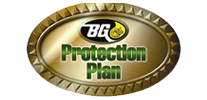The fuel tank shield is a crucial component in Land Rovers, serving to protect the fuel tank from potential damage due to road debris, rocks, and other obstacles encountered during off-road adventures and harsh weather. It acts as a barrier between the tank and the elements, ensuring the safety and functionality of the vehicle’s fuel system.
However, over time, many Land Rover owners have reported an alarming issue – the fuel tank shield tends to rust, leading to several complications. The primary cause of this rusting phenomenon can be attributed to the harsh conditions that these vehicles often operate in. Off-road driving exposes the undercarriage to different elements, which gradually eat away at the protective coatings and promote rust formation.
Why the Fuel Tank Shield in Your Land Rover Rusts
Here are some of the key causes of rusting in Land Rover fuel tank shields:
- Exposure to Corrosive Elements: Land Rovers are often used in demanding environments, including off-road terrains, muddy trails, and snowy roads. These conditions expose the undercarriage, including the fuel tank shield, to a range of corrosive elements such as mud, salt, water, and chemicals used for road treatment. These substances can weaken the protective coatings on the shield, making it more susceptible to rust.
- Moisture Accumulation: Moisture is a primary catalyst for rust formation. Off-road adventures can lead to the accumulation of moisture in various nooks and crannies of the vehicle, including the fuel tank shield. Moisture, combined with oxygen from the air, creates the ideal conditions for the electrochemical process of rusting to occur.
- Mechanical Damage: The fuel tank shield is positioned underneath the vehicle, making it vulnerable to impacts from rocks, debris, and other obstacles encountered during off-road driving. Even minor scratches or dents on the shield’s surface can compromise its protective coatings, exposing the underlying metal to the elements and accelerating rusting.
- Lack of Maintenance: Regular maintenance is essential for any vehicle, but it becomes even more critical for Land Rovers due to their rugged usage. If the undercarriage, including the fuel tank shield, is not cleaned and inspected regularly, dirt, mud, and other contaminants can accumulate. These contaminants trap moisture against the shield’s surface, accelerating rust formation.
- Salt and Chemical Exposure: Road salts and chemicals used for de-icing can have a corrosive effect on the undercarriage, including the fuel tank shield. These substances can accelerate the breakdown of protective coatings and directly contribute to the development of rust.
- Age: As a Land Rover ages, the protective coatings and materials on the fuel tank shield can naturally degrade. This degradation increases the shield’s vulnerability to rust, especially if it has been subjected to a history of rough use and limited maintenance.
Consequences of Fuel Tank Shield Rusting
Rusting of the fuel tank shield can have a cascading effect on various aspects of the vehicle:
- Structural Integrity: Rust weakens the structural integrity of the fuel tank shield, making it susceptible to physical damage. This damage, in turn, can lead to more severe issues, including fuel leaks, which pose a safety hazard.
- Performance: A compromised fuel tank shield can disrupt the vehicle’s performance. The added weight of rust and corrosion could affect the balance and handling of the Land Rover, ultimately impacting the driving experience.
- Aesthetic Degradation: While functionality is of utmost importance, the appearance of a Land Rover also matters to its owner. Rust spots on the fuel tank shield can mar the overall aesthetics of the vehicle, reducing its resale value and diminishing the pride of ownership.
Addressing Tank Shield Rusting
Prevention is better than cure. Routinely cleaning the undercarriage to remove dirt and salt can significantly reduce the chances of rust formation. A clean undercarriage is less likely to accumulate moisture and debris that contribute to corrosion.
Applying rust-resistant coatings to the fuel tank shield can provide an additional layer of protection against corrosive elements. Specialized paints and coatings designed for undercarriage protection can help create a barrier that prevents rust from taking hold.
Regularly taking your Land Rover to a certified mechanic for inspections can help catch early signs of rust or damage on the fuel tank shield.
Keep Rust Out Of Your Land Rover Tank Shield
At European Motor Cars, we can address Land Rover fuel tank shield rusting concerns with expertise. When you bring your SUV in, our mechanics will ensure the performance and appearance are maintained. Serving Summerlin, Spring Valley, Las Vegas, NV, and beyond, we offer preventive measures, rust-resistant coatings, inspections, and repair solutions. Our commitment to quality sets us apart. Safeguard your Land Rover’s value—schedule a consultation today.
 3440 Spring Mountain Rd, Las Vegas, NV 89102
3440 Spring Mountain Rd, Las Vegas, NV 89102 (702) 367-7140
(702) 367-7140






